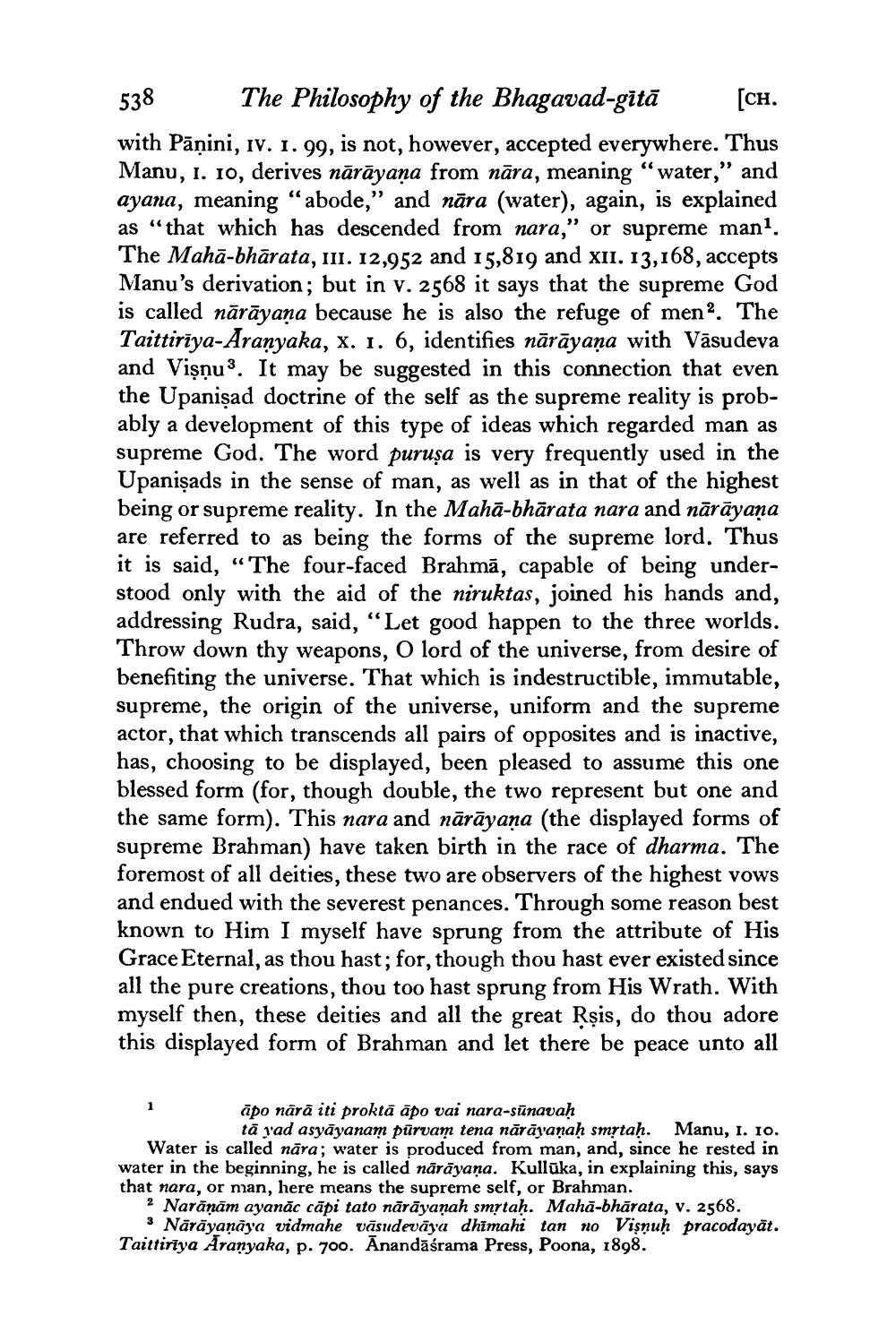________________
538
The Philosophy of the Bhagavad-gītā
[CH.
with Panini, IV. 1. 99, is not, however, accepted everywhere. Thus Manu, I. 10, derives nārāyaṇa from nāra, meaning "water," and ayana, meaning “abode," and nāra (water), again, is explained as "that which has descended from nara," or supreme man1. The Maha-bharata, III. 12,952 and 15,819 and XII. 13,168, accepts Manu's derivation; but in v. 2568 it says that the supreme God is called nārāyaṇa because he is also the refuge of men2. The Taittiriya-Aranyaka, x. 1. 6, identifies nārāyaṇa with Vasudeva and Vişnu3. It may be suggested in this connection that even the Upanisad doctrine of the self as the supreme reality is probably a development of this type of ideas which regarded man as supreme God. The word puruşa is very frequently used in the Upanisads in the sense of man, as well as in that of the highest being or supreme reality. In the Mahā-bhārata nara and nārāyaṇa are referred to as being the forms of the supreme lord. Thus it is said, "The four-faced Brahma, capable of being understood only with the aid of the niruktas, joined his hands and, addressing Rudra, said, "Let good happen to the three worlds. Throw down thy weapons, O lord of the universe, from desire of benefiting the universe. That which is indestructible, immutable, supreme, the origin of the universe, uniform and the supreme actor, that which transcends all pairs of opposites and is inactive, has, choosing to be displayed, been pleased to assume this one blessed form (for, though double, the two represent but one and the same form). This nara and nārāyaṇa (the displayed forms of supreme Brahman) have taken birth in the race of dharma. The foremost of all deities, these two are observers of the highest vows and endued with the severest penances. Through some reason best known to Him I myself have sprung from the attribute of His Grace Eternal, as thou hast; for, though thou hast ever existed since all the pure creations, thou too hast sprung from His Wrath. With myself then, these deities and all the great Rṣis, do thou adore this displayed form of Brahman and let there be peace unto all
āpo nārā iti proktā āpo vai nara-sūnavaḥ
tā yad asyāyanam pūrvam tena nārāyaṇaḥ smṛtaḥ. Manu, I. 10. Water is called nara; water is produced from man, and, since he rested in water in the beginning, he is called nārāyaṇa. Kullūka, in explaining this, says that nara, or man, here means the supreme self, or Brahman.
2 Narāṇām ayanāc capi tato nārāyaṇah smṛtaḥ. Mahā-bhārata, v. 2568. 3 Nārāyaṇāya vidmahe vasudevaya dhimahi tan no Vişnuḥ pracodayāt. Taittiriya Aranyaka, p. 700. Ānandāśrama Press, Poona, 1898.




